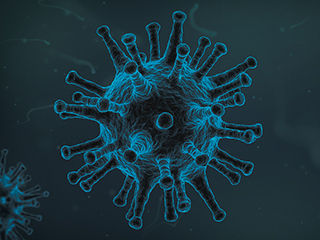AiCuris: No Resistant Herpes Simplex Virus (HSV) Observed in Phase II Trial with Herpes Drug AIC316
AiCuris announces that it will present the results of the resistance analysis from the recently completed phase II clinical trial with AIC316 at the 51st Interscience Conference on Antimicrobial Agents and Chemotherapy (ICAAC) in USA, Chicago. AIC316 is one of AiCuris lead compounds and was tested in patients with genital herpes (herpes simplex virus type 2, HSV-2). AiCuris' project leader and senior scientist Dr. Alexander Birkmann will present the work, which was conducted in collaboration with the University of Washington, Seattle.
In the trial 156 HSV-2 positive subjects were randomized to either one of four AIC316 treatment groups or to placebo. Objective of the trial was to compare the efficacy of different doses of AIC316 (5, 25, and 75 mg once daily and 400 mg once weekly) and placebo with respect to the suppression of HSV mucocutaneous shedding under treatment. Trial participants provided daily swabs of their genital area that were analyzed for HSV DNA. Treatment with AIC316 was safe and well tolerated. A significant and dose dependent reduction of both viral DNA and days with HSV lesions could be demonstrated.
Positive swabs were subjected to DNA sequence analysis and sequence data of relevant regions in the viral UL5 helicase and UL52 primase genes (the molecular targets of AIC316) were compared with the HSV-2 reference sequence. It could be shown that under treatment with AIC316 in this phase II trial there was no emergence of viruses with any of the recognized resistance mutations.
"The fact that no potentially resistance mediating mutations were detected under AIC316 treatment is very encouraging" says Professor Helga Ruebsamen-Schaeff, CEO of AiCuris, "As we saw a clear dose-response within our trial, this result also means that even under a suboptimal therapy at the lower dose, which allowed some viral growth, no resistant mutants escaped."
Other news from the department research and development

Get the life science industry in your inbox
By submitting this form you agree that LUMITOS AG will send you the newsletter(s) selected above by email. Your data will not be passed on to third parties. Your data will be stored and processed in accordance with our data protection regulations. LUMITOS may contact you by email for the purpose of advertising or market and opinion surveys. You can revoke your consent at any time without giving reasons to LUMITOS AG, Ernst-Augustin-Str. 2, 12489 Berlin, Germany or by e-mail at revoke@lumitos.com with effect for the future. In addition, each email contains a link to unsubscribe from the corresponding newsletter.





















































